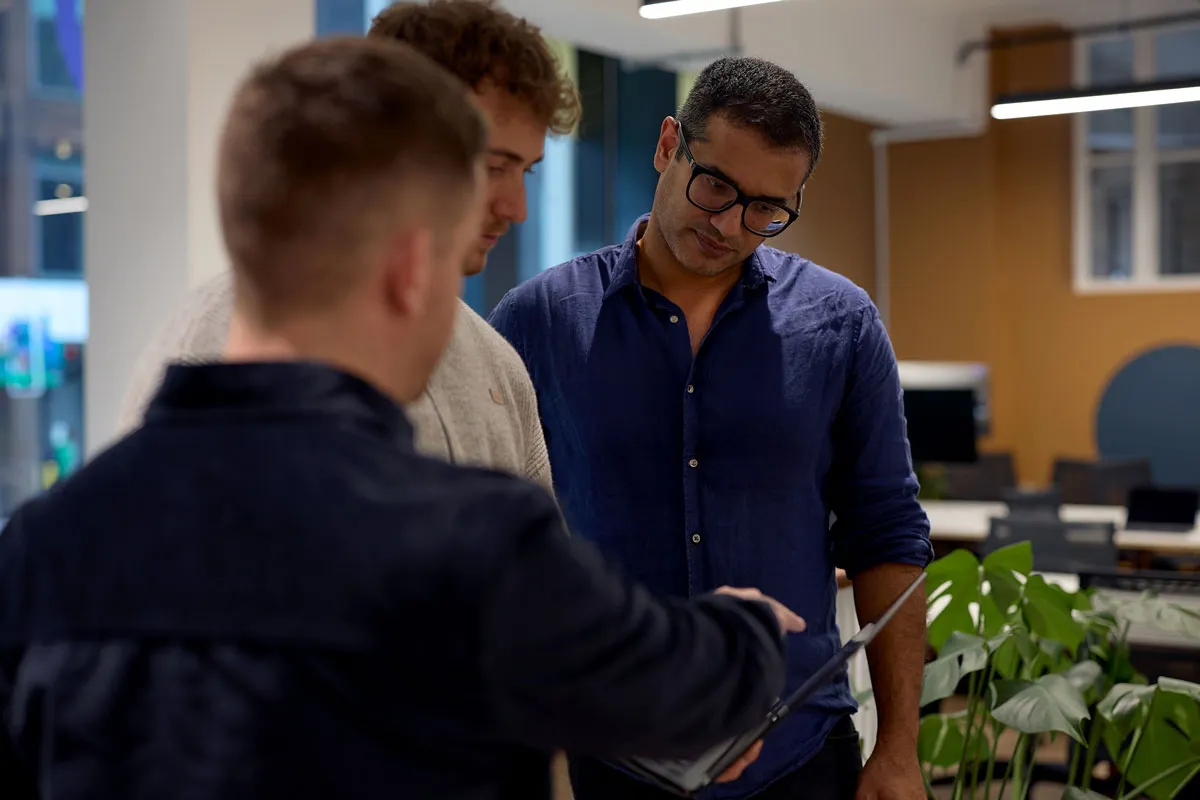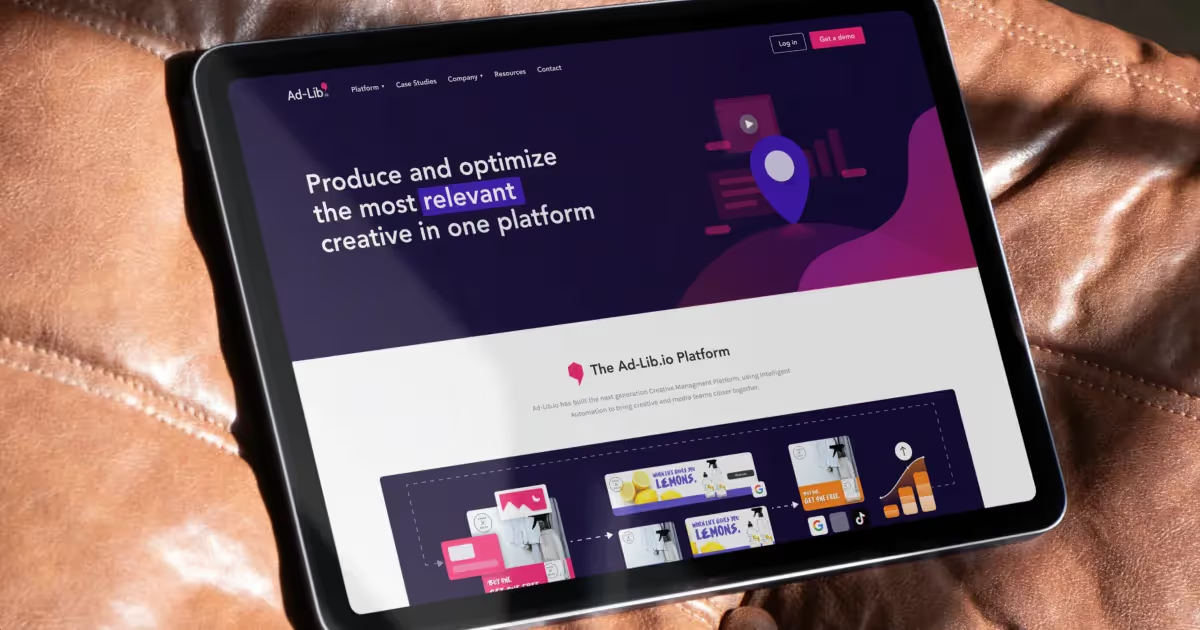.svg)
Choosing the right digital product agency in London is a defining step for any modern business, whether launching a new app, streamlining an existing service, or reimagining an entire digital experience. With its unique blend of technical innovation, creative energy, and competitive landscape, London is home to numerous agencies vying for your trust. This comprehensive, step-by-step guide, drawing from the latest research and agency rankings, will equip you with everything you need to make an informed, future-forward choice.
Table of Contents
- Introduction: Why the Right London Agency Matters
- Clarifying Your Digital Product Vision
- The Key Criteria to Evaluate
- Track Record and Proven Results
- Technical and Strategic Expertise
- Industry Experience and Specialist Focus
- Communication, Collaboration Style, and Cultural Fit
- Scalability, Partnership Potential, and Future Support
- Pricing Transparency and Real Value
- Understanding Agency Service Offerings
- Decision-Making: Red Flags & Mistakes to Avoid
- Q&A: Advanced Questions for Smart Agency Selection
- Conclusion: Setting Up for Digital Success in 2025

Introduction: Why the Right London Agency Matters
London’s status as a global tech and creative hub means businesses here encounter some of the most innovative digital agencies worldwide. However, the sheer variety also means that making the wrong choice can result in lost time, budget overruns, disappointing user outcomes, and failed launches. The ideal agency is not simply a supplier, they are a strategic partner, aligning your business vision with human-centred digital products grounded in the realities of compliance, scale, and ongoing change.
Clarifying Your Digital Product Vision
Before researching agencies, your team should define:
- Core goals: What business outcomes do you want: more customers, streamlined operations, brand repositioning, etc.?
- Project scope and needs: Mobile app, web platform, e-commerce, SaaS, or hybrid? Consider security, integration, user personas, and accessibility requirements.
- Budget and timeline: Be realistic about constraints, priorities, and flexibility.
- Stakeholder alignment: Identify the internal champions and end-users influencing project success.
This foundation enables more focused interviews, shortlist reviews, and the development of proposals later on.
The Key Criteria to Evaluate
Track Record and Proven Results
- Case studies and references: Does the agency’s portfolio show depth, variety, and recent, relevant delivery? Are their skills evidenced by measurable outcomes, not just pretty images?
- Market recognition: Awards and reviews signal excellence, but always look for tangible, real-world impact like increased engagement, retention, revenue, or positive user metrics.
- Client types: Have they partnered with businesses like yours, or navigated similar technical or compliance environments?
Technical and Strategic Expertise
- Up-to-date technology: Are they active in modern frameworks, cloud platforms, and emerging AI or automation toolsets?
- UX and accessibility leadership: Do they build delightful yet universally usable user experiences and have evidence of inclusive design in their work?
- Methodology: Agile, iterative delivery with regular milestones, user testing, and rapid feedback loops is best for most digital projects in 2025.
Industry Experience and Specialist Focus
- Sector expertise: Agencies that regularly deliver for your industry (fintech, SaaS, health, retail, etc.) shortcut learning curves and anticipate risks.
- Specialisation vs. full service: Niche agencies offer deep knowledge, while end-to-end providers offer cohesive strategy and consistent communication throughout every phase. Your business needs should determine which approach fits best.
Communication, Collaboration Style, and Cultural Fit
- Transparency: Reliable updates, clear timelines, and documentary evidence of progress (like Jira boards, Figma files, Notion wikis) are all essential signals.
- Responsiveness: Is the project team easy to reach, proactive in troubleshooting, and honest about challenges or delays?
- Values match: Do you share attitudes to sustainability, diversity, and long-term growth? Projects succeed when both client and agency are aligned on more than technical details.
Scalability, Partnership Potential, and Future Support
- Ongoing support: Will your agency help after go-live, with analytics, maintenance, and enhancements, or will you need to find new partners for every new phase?
- Capacity to scale: As your ambitions grow or shift, can the agency add new skills, resources, and even products as you evolve?
Pricing Transparency and Real Value
- Clear, itemised proposals: Avoid agencies with vague or catch-all pricing demand breakdowns for design, engineering, QA, project management, and support.
- True value: The cheapest agency rarely delivers long-term impact, while top agencies justify their premium with proven ROI, security, technical depth, and ongoing partnership benefits. Ask for evidence.
Understanding Agency Service Offerings
Most top London digital product agencies provide a menu that includes:
UI/UX Design
- What It Covers: Web, app, voice, and device interfaces for maximum usability, branding, and accessibility.
- Example Deliverables: Wireframes, interaction flows, prototypes.
Branding & Visual Identity
- What It Covers: Full service from naming to design systems, ensuring user recognition and trust.
- Example Deliverables: Logo, style guide, pattern libraries.
Prototyping & MVP
- What It Covers: Early models to validate ideas and minimise risk before heavy investment.
- Example Deliverables: Clickable prototypes, pilot launches.
Web/App Development
- What It Covers: Frontend and backend builds, cloud and API integration, automation, and CMS management.
- Example Deliverables: Deployed code, handover documentation.
AI-Driven & Personalised UX
- What It Covers: Real-time recommendations, analytics dashboards, and user-driven product features using the latest automation and AI.
- Example Deliverables: Dynamic content, data visualisation.
Voice & Conversational UI
- What It Covers: Voice-activated or chatbot interfaces, especially for fintech and smart device innovation.
- Example Deliverables: Bot scripts, Alexa/Google integration.
Accessibility Compliance
- What It Covers: Meeting and exceeding WCAG and UK regulatory requirements to include every user.
- Example Deliverables: Accessible prototypes, compliance reports.
Sustainability Consulting
- What It Covers: Efficient coding, green hosting, digital carbon reduction, and responsible design for the planet and PR requirements.
- Example Deliverables: Green audits, eco-friendly design reports.
Service depth and process quality are usually what separate agencies at the top of the London market from generic “web design” or “dev shops”.
Decision-Making: Red Flags & Mistakes to Avoid
- Too-good-to-be-true quotes or vague timelines: These often mean hidden costs or unproven teams.
- Lack of independent references: No real-world proof from prior clients is a major red flag.
- Fixed waterfall (“big bang”) approach: Modern agencies must deliver iteratively and rapidly; rigid, upfront planning is a risk for most modern products.
- Poor communication: If emails go unanswered or you feel “sold to,” not consulted, consider other options.
- No post-launch support or knowledge transfer: Your journey doesn’t end at launch. Ensure agencies help you own the platform and upskill your team.

Q&A: Advanced Questions for Smart Agency Selection
Q1: What distinguishes a truly top-tier digital product agency in London?
The best agencies balance robust case studies, sector insight, technical finesse, and genuine post-launch partnership. They’re transparent about process, upfront about risks, and treat each client as a long-term collaborator rather than a quick win.
Q2: Should I pick a specialist or a full-service agency?
Specialists offer depth in complex areas (e.g., fintech compliance or AI), while “full-stack” agencies enable integrated delivery and single-point accountability. Choose based on your in-house skills and the complexity of your roadmap.
Q3: What’s a realistic project timeline?
A focused MVP could launch in 8–16 weeks, while full-scale platforms with integrations or heavy compliance might take 4–12 months. Phased approaches, with early validation and regular feedback, are preferred to manage evolving goals without blowing the budget.
Q4: What value does continued support bring post-launch?
Agencies invested in ongoing success ensure fast bug fixes, analytics set-up, feature enhancements, training, and roadmap planning. This proactive partnership keeps your digital product aligned with changing user needs and technology.
Q5: How important is industry experience for a great agency to “learn” my sector?
While some generalist agencies can adapt, those with established sector experience ramp up faster, navigate regulatory hurdles more efficiently, and often anticipate user needs better. For highly regulated or technical spaces (like health or finance), prioritise those with direct industry experience.
Q6: What questions should I ask agencies during my selection process?
- Can you walk me through a recent full lifecycle case study similar to my project?
- How do you ensure communication and feedback are managed at every stage?
- What’s your handover process? Will my team be able to manage and improve the product independently after launch?
- What is your approach to accessibility and sustainability in digital product design?
- Who will be my main point of contact, and what happens if there are staff changes mid-project?
Q7: What does &above do differently in the London agency space?
&above delivers immersive, accessible, and analytics-driven digital products, blending local London market insight with global best practices. Known for agile methodology, transparent communication, and a client-empowering ethos, &above’s portfolio balances standout creativity with robust technical compliance, making them a partner for both launch and long-term digital evolution.
Conclusion: Setting Up for Digital Success in 2025
The path to digital success in London’s dynamic market is paved by rigorous agency selection, grounded in clear criteria, open communication, and a shared vision of scalable, human-centred products. Agencies like &above bring together technical mastery, industry insight, and a partnership mindset, empowering businesses well beyond their project’s initial launch.
Businesses that follow this guide, defining needs, asking the right questions, and vetting with care position themselves for true digital transformation, exceptional user outcomes, and resilient market advantage in 2025 and beyond.




